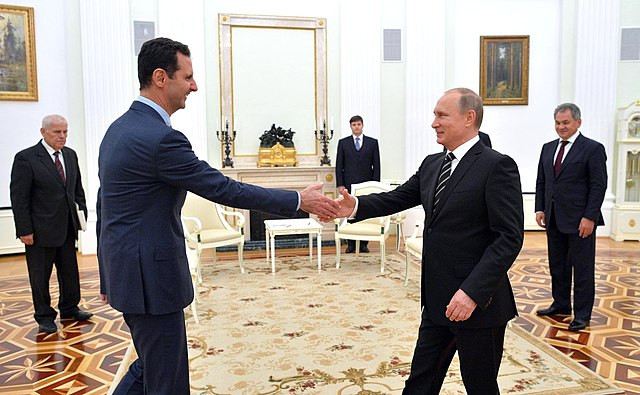Bashar al-Assad, the embattled Syrian leader, has fled to Moscow with his family after rebel forces seized Damascus in a dramatic offensive that ended nearly six decades of rule by the Assad family. Russia's Foreign Ministry confirmed Assad's departure on Sunday, stating he had given instructions for a peaceful transfer of power.
Russian state media reported that Assad and his family were granted asylum in Moscow on humanitarian grounds. "Syrian President Assad of Syria and members of his family have arrived in Moscow," the privately-owned Interfax news agency and state media quoted an unnamed Kremlin source as saying. The source added that Russia supports a political resolution to the crisis in Syria, calling for renewed negotiations under the auspices of the United Nations.
The rapid rebel advance culminated in Damascus on Saturday, with little resistance reported from Syrian government forces. Thousands of Syrians flooded the streets in celebration, waving revolutionary flags and chanting anti-Assad slogans. Syrian state television confirmed that prisoners had been released from facilities like the notorious Saydnaya prison, while soldiers and police abandoned their posts across the capital.
Russian Ambassador Mikhail Ulyanov commented on the situation, writing on Telegram: "Bashar al-Assad and his family in Moscow. Russia does not betray friends in difficult situations."
The opposition coalition, led by Hayat Tahrir al-Sham (HTS), has guaranteed the safety of Russian military bases and diplomatic posts in Syria, according to Russian news agencies. However, the situation remains precarious. Influential Russian war blogger Rybar, known for his connections to the Defense Ministry, warned, "Russia's military presence in the Middle East region hangs by a thread." He highlighted concerns about the security of Russia's Hmeimim airbase in Latakia and its naval facility at Tartous, critical to Moscow's strategic interests in the Mediterranean.
As celebrations unfolded in Damascus, Syrian state television aired a statement from Prime Minister Mohammed Ghazi Jalali, who pledged cooperation with the opposition for a peaceful transition. "I am in my house and I have not left, and this is because of my belonging to this country," Jalali said. He urged citizens to preserve state institutions and avoid further violence.
The fall of Assad marks a turning point in Syria's 14-year civil war, which has claimed hundreds of thousands of lives and displaced millions. Rebel leader Abu Mohammed al-Golani, who once led an al-Qaeda affiliate, visited the Umayyad Mosque in Damascus on Sunday, calling the regime's collapse "a victory for the Islamic nation." Al-Golani emphasized unity, stating, "Syria is for everyone, no exceptions."
The Assad regime's collapse also has significant implications for its allies, including Russia, Iran, and Hezbollah. Moscow has invested heavily in Syria, intervening militarily in 2015 to stabilize Assad's government. Russia's Hmeimim airbase and Tartous naval facility have been central to its regional influence, but their future remains uncertain following the regime's downfall.
Iran, another key ally of Assad, faces a weakened position in the region as it contends with ongoing conflicts involving its proxies. Iranian Ambassador Hossein Akbari stated on Sunday that the Syrian government decided to hand over power peacefully after recognizing the insurgents' military superiority. "When the army and the people could not resist, it was a good decision to let go to prevent bloodshed and destruction," Akbari said on state media.
The United Nations' special envoy for Syria, Geir Pedersen, has called for urgent talks in Geneva to ensure an orderly political transition. Meanwhile, Qatar hosted an emergency meeting with representatives from eight countries, including Russia, Turkey, and Iran, to discuss Syria's future. Qatar's Foreign Ministry spokesman, Majed al-Ansari, emphasized the importance of engaging all parties, including HTS, in maintaining stability during the transition.




